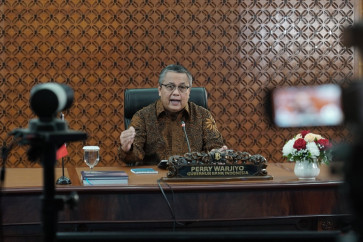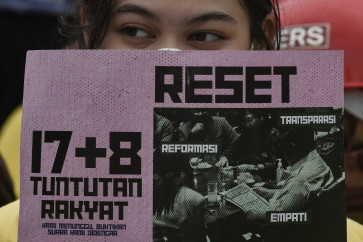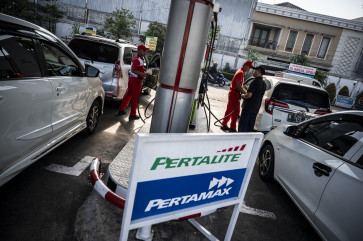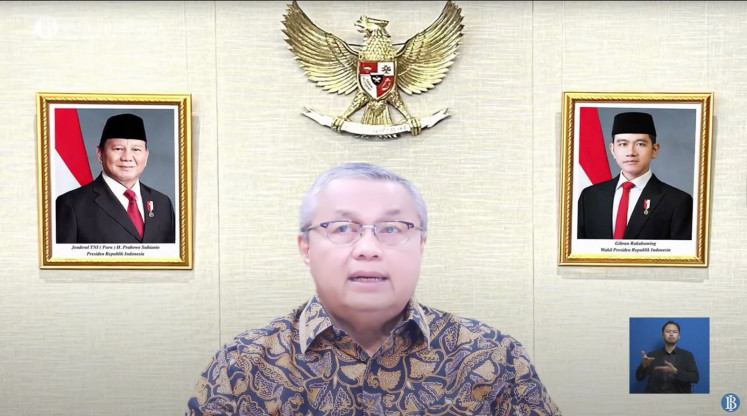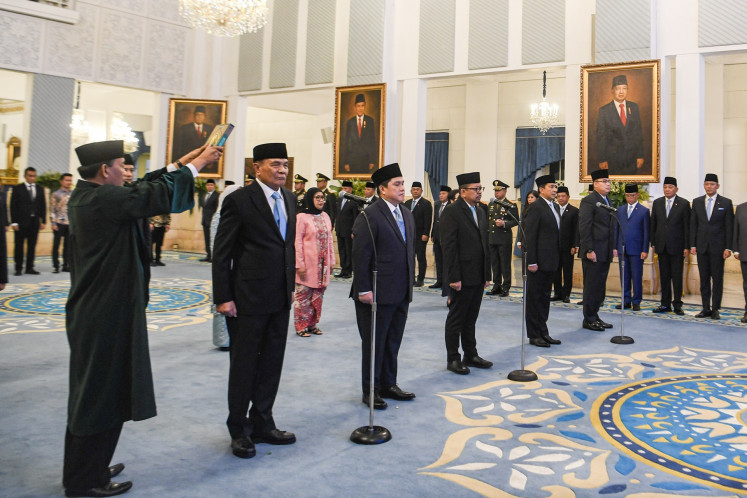Popular Reads
Top Results
Can't find what you're looking for?
View all search resultsPopular Reads
Top Results
Can't find what you're looking for?
View all search resultsMobility of skilled labor needed for successful AEC
Change text size
Gift Premium Articles
to Anyone
A
SEAN Dialogue partners are urging Southeast Asian countries to pick up the slack in providing better access to employment for its skilled workers in an effort to achieve the target of free flowing labor in the region.
Efforts to enhance skilled labor mobility in ASEAN have mainly relied on the Mutual Recognition Arrangements (MRAs) on qualifications in professional services, but the slow pace of ASEAN in implementing the framework has prevented more people from experiencing the benefits of the ASEAN Economic Community (AEC).
According to South Korean Ambassador to ASEAN, Suh Jeong-in, ASEAN MRAs are important not only in realizing AEC benefits but also to complete the supply chains established across the region by multinational corporations.
Suh argued that Korean companies were finding it hard to pick up skilled workers that matched their requirements from the available talent pool in their countries of operations.
“[South Korea’s] investment in ASEAN amounts to around US$4 billion, but some Korean companies operating in Indonesia find it difficult to find the right kind of skilled labor,” he told a panel discussion on Thursday.
Unless ASEAN leaders showed the political will to deal with domestic hurdles and effectively made use of the MRAs, investors already operating in the region would not be able to help realize the real benefits of the AEC, the envoy argued.
Taking a slightly more constructive tone based on the Indian experience, Indian Ambassador to ASEAN Suresh K. Reddy said ASEAN needed to recognize the need for more skilled workers.
He said it was to prepare for the changing reality that the service sector would soon replace manufacturing as the driver of economic growth.
In the past decade, ASEAN agreed to negotiate MRAs for eight professions, starting with engineers in 2005 and followed by nurses, architects, geospatial surveyors, accountants, medical and dental practitioners and tourism professionals.
But the bloc only managed to prepare the implementation of MRAs for engineers, architects and tourism professionals.
“The target for these MRAs was to [have them all completed] by the end of last year, but unfortunately we only managed to complete three,” Indonesian Ambassador to ASEAN Rahmat Pramono said.
He gave an assurance that all 10 ASEAN member states were committed to achieving the remaining five MRAs, while some stumbling blocks still existed for a couple of other professions.
Medical and dentistry practitioners count among the hardest for ASEAN to negotiate, he said, because of the different systems of instruction and curricula used in each country.
The Indonesian medical field, for example, was largely influenced by Dutch practice, while Singapore and Malaysia have inherited the British curriculum of medical instruction, the envoy said.
“I have to admit that negotiations are tough when it comes to the field of medical practice, but [I think] they will eventually be achieved, albeit in two years or so,” Rahmat told The Jakarta Post.
“We don’t want to align the different curricula, but there has to be a standard among professionals.”
Meanwhile, negotiations on other professions such as accounting are still progressing, the envoy said, without stating a time limit.
However, these eight professions represent only 1.5 percent of the total ASEAN workforce of over 300 million, dominated by unskilled and low-skilled workers.


